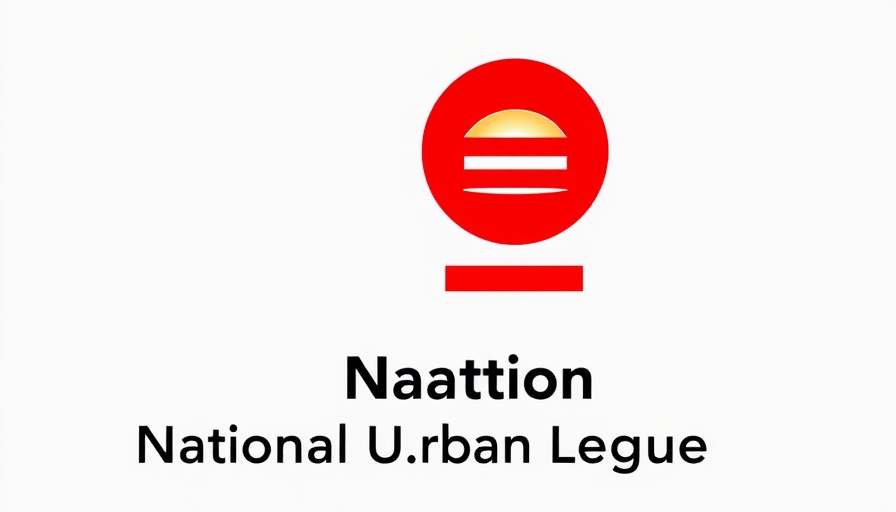
America's Civil Rights Crisis: The Urban League's Urgent Call
The National Urban League has made clear that America is facing an urgent civil rights crisis. Their latest report, presented during the annual conference in Cleveland, outlines significant regressions in civil rights protections that have developed under the Trump administration. Leaders like Marc Morial assert that federal department cuts, especially in Education, HUD, and the Justice Department’s civil rights office, are not random acts but instead part of a systematic dismantling aimed at erasing critical equity frameworks established over decades.
Understanding Project 2025: A Blueprint for Dismantlement
Central to this alarming situation is Project 2025, which the Urban League claims is a deliberate initiative led by The Heritage Foundation. This project has been described as a systematic approach to erode the policy underpinnings that support civil rights. Morial warned that the stakes are far-reaching, emphasizing a coordinated effort to undermine the structures of equity that have been painstakingly constructed.
The Corporate Backlash Against Diversity
Beyond governmental policy, the report highlights a concerning trend among corporate entities and academic institutions that committed to promoting diversity, equity, and inclusion (DEI). Reportedly, firms in Silicon Valley, such as Meta and X, are critiqued for silencing Black voices while allowing harmful rhetoric to flourish. The Urban League shines a spotlight on how DEI programs are becoming subject to cuts and rollbacks, a phenomenon that extends to boardrooms and classrooms alike.
The Ground Level Response: Activism in Action
The response from activists and community members has been immediate and organized. On the fifth anniversary of John Lewis’s passing, gatherings dubbed "Good Trouble Lives On" are being organized in Detroit, reflecting the resolve of community members to protest against the erosion of civil rights. With over 1,500 events nationwide scheduled, the call for action is resonating across the country, underlining a collective drive to reinforce civil rights protections.
The Judicial Fight: Courts as Battlegrounds for Civil Rights
According to Illinois Attorney General Kwame Raoul, the judicial system may become a crucial battleground in defending against discriminatory practices. Raoul, a contributor to the report, believes that challenges in court will be vital in contesting rollbacks that threaten marginalized communities. In this context, the Urban League’s report points to an escalating conflict, where civil rights organizations stand ready to litigate against policies they perceive as discriminatory.
Empowering Civic Engagement
Prominent figures within the Congressional Black Caucus, such as Yvette Clarke and Hakeem Jeffries, are stressing the need for increased civic engagement. They encourage grassroots education on how policy decisions affect everyday aspects like work, education, and voting. This message is particularly salient as it connects policy shifts with the lived experiences of Black Americans, aiming to raise awareness about the crucial stakes involved.
Confronting Historical and Present Challenges
This moment is not without historical context; as Rep. Shomari Figures noted, the struggle for civil rights is an ongoing battle. He posed a foundational question regarding the commitment of America to treat Black individuals as full citizens. The essence of the Urban League’s report serves to remind us that the looming threat to civil rights is not just a political issue but a significant threat to democracy itself.
A Call to Action: Mobilizing for the Future
A call for a “new resistance” is echoed throughout the report, advocating for legal challenges, community organizing, and sustained activism. The ongoing rallies, teach-ins, and voter registration drives being organized in Detroit exemplify the proactive stance that communities are taking. As Marc Morial articulated, while opponents have a strategy, it is crucial for advocates to formulate a responsive plan to navigate this complex landscape.
This report from the Urban League serves as a rallying cry. It urges all citizens, particularly youth and community leaders, to mobilize efforts toward defending civil rights, fostering an engaged electorate, and building momentum against policies that seek to undermine equity. Only through collective action can America hope to uphold its promise of democracy for all.
 Add Row
Add Row  Add
Add 




Write A Comment